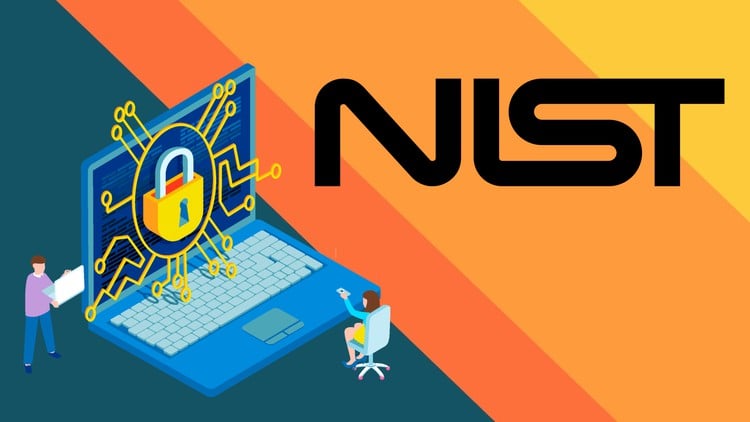
Navigating Federal Standards, Control Implementation, and Continuous Monitoring
⏱️ Length: 9.5 total hours
⭐ 4.50/5 rating
👥 9,168 students
🔄 November 2023 update
Add-On Information:
Note➛ Make sure your 𝐔𝐝𝐞𝐦𝐲 cart has only this course you're going to enroll it now, Remove all other courses from the 𝐔𝐝𝐞𝐦𝐲 cart before Enrolling!
- Course Overview
- Master the NIST Risk Management Framework (RMF), a critical blueprint for federal information system security. This course guides professionals through managing cyber risks from inception to continuous operation, ensuring robust compliance and defense.
- Gain a strategic understanding of integrating cybersecurity throughout the system lifecycle. Learn to proactively identify and mitigate vulnerabilities aligned with national security and regulatory mandates, transforming theory into practical application.
- Beyond compliance, foster trust in information systems by systematically assessing, mitigating, and monitoring risks. Establish repeatable processes for adaptable security governance that responds to evolving threats.
- Requirements / Prerequisites
- A foundational understanding of IT concepts, including basic networking, operating systems, and general cybersecurity terms, is beneficial for grasping framework applications.
- No specific certifications are required, but an awareness of general data security principles or compliance challenges will enhance your learning experience.
- Skills Covered / Tools Used
- Enterprise Risk Program Design: Develop the ability to architect an organization’s cybersecurity risk management program, integrating federal RMF principles into broader governance initiatives.
- Control Implementation Optimization: Learn to strategically select, tailor, and implement security controls for maximum effectiveness against specific threats and system risks.
- Authorization Package Development: Master compiling and presenting comprehensive system security documentation for Authorization to Operate (ATO), effectively communicating risk posture.
- Continuous Compliance Monitoring: Gain proficiency in designing and executing continuous monitoring strategies to ensure ongoing adherence to security controls and regulatory requirements.
- Benefits / Outcomes
- Specialized Career Advancement: Emerge as a specialist in federal cybersecurity, qualified for high-demand roles like RMF Analyst or GRC Consultant within government and defense sectors.
- Enhanced Organizational Resilience: Directly contribute to elevating an organization’s cyber resilience, ensuring systems are both compliant and genuinely secure against sophisticated threats.
- Strategic Security Influence: Develop confidence to guide senior leadership on security strategy, risk acceptance, and resource allocation, fostering enterprise-wide security maturity.
- Streamlined Audit Preparedness: Cultivate skills to prepare information systems for rigorous federal security assessments, minimizing audit findings and accelerating system authorization.
- PROS
- High Demand Skillset: Addresses a critical and specialized area within federal cybersecurity.
- Practical & Actionable: Provides concrete strategies for real-world RMF implementation.
- Current & Relevant: November 2023 update ensures the latest federal standards.
- Proven Effectiveness: 4.5/5 rating from over 9,000 students attests to high quality.
- CONS
- Niche Focus: Primarily tailored for federal and highly regulated environments, potentially less direct for general private-sector cybersecurity without specific compliance needs.
Learning Tracks: English,IT & Software,Other IT & Software
Found It Free? Share It Fast!